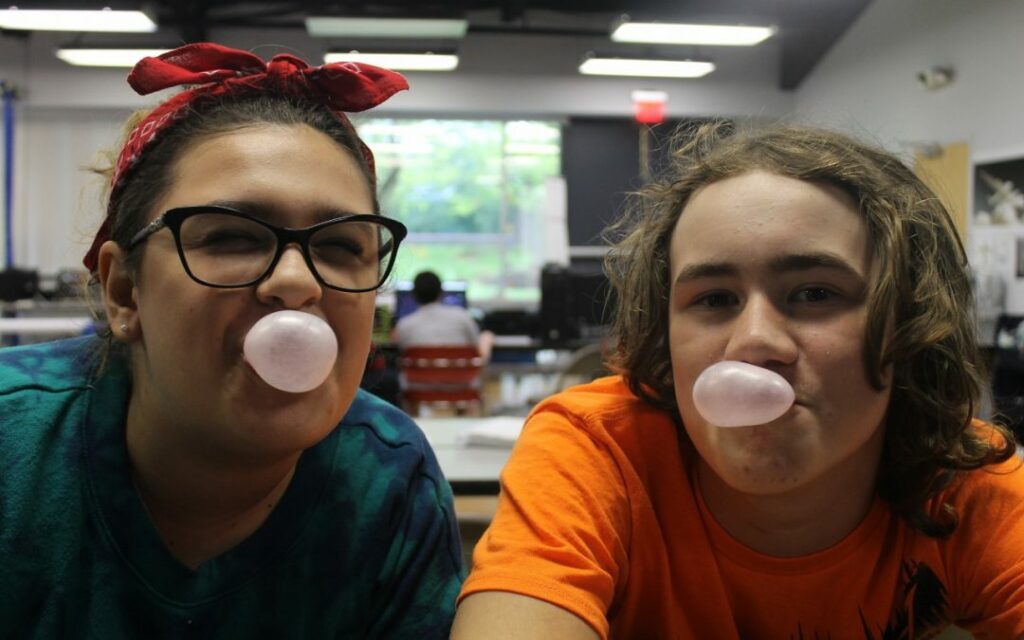The 2016-2017 school year is over, and many children had absolutely fabulous experiences with little to no stress or angst over homework. Parents are thrilled with the final grades and hope is running high for yet another “Blue Ribbon Year.” However, for many parents, despite all their effort, care and positive encouragement of their child, they look back on an absolutely exhausting year with final grades that are less-than-stellar or downright disappointing. Their frustrated, apologetic children are sad that they let their parents (and themselves) down. Do parents just continue to cheerlead next school year? Hire summer tutors? The ultimate question is, “How do parents grapple with the outcome of last school year and make educated, informed choices to alter this scenario for the upcoming school year?”
Parents need to first understand that poor academic performance should only be seen as an indicator that something is amiss, not just that the child is lazy or that the school (or teacher) isn’t the best “fit.” Bad grades, or less than A’s or B’s for a potential Honor Roll student, are a signal that parents need to take a really hard look at core issues. Poor grades are sometimes a symptom of a larger social, motivational, or internal problem. When they can get to the root of these issues then address the underlying concerns, parents have a real chance of helping create for their child a well-rounded, successful school year which, in turn, means a happier, more peaceful home life with little to no strife surrounding homework or grades. Additionally, bad grades and consequential problems both at school and at home can often be traced back to several different starting points. #1: Is the child motivated and feeling safe in school? #2. Is there parent-teacher teamwork, thus creating better understanding of the child? #3: What do parents need to decide this summer regarding their child’s curriculum for 2017-18 school year? Finally, #4: What role do study skills play in the child’s education?
#1. Motivation Precedes Education: When there is motivation to excel, love of learning and a thirst for knowledge, anything can be accomplished! Teachers are often overwhelmed with twenty or more students in a class; in short supply are positive, student-to-teacher consults. Often, the only personal reinforcement from teachers is on graded papers with smile faces or “good job” penciled in the margins. Instead, what if your child’s papers repeatedly come home looking like a Christmas tree with red marks everywhere? Then, where is your child’s motivation to do better?
#2. Emotional Wiring & Team-work: The starting place is for parent and teachers to communicate and together building a good, positive educational atmosphere for the child. Often the teacher is “out of the loop” and assumes that negative comments will create a harder-working child. Maybe this IS your child…negativity yields the “fight back” spirit. However, what if your highly sensitive child tends to be crushed by negativity? Your teacher needs to know what you know…how your child is emotionally wired. Your child should always feel safe at home, and certainly always at school. Parents need to have a role in this by relating to the teacher the child’s internal, emotional mechanism. Parents know their children best. An unsafe emotional environment at school is one where successes are few, but constant evaluation and criticism are rampant. This can cause a child to shut down then to shut out learning, due to the need for emotional self-preservation. School becomes a place to withdraw inward, not a place where the student has the confidence to express himself, excel academically, socially, or in extracurricular activities. Explaining to the teacher how your child best responds is the place to begin in September, so that teamwork can begin.
#3. Proper decision-making by parents regarding courses.
While providing safe emotional spaces for your child, the key to creating a great 2017-18 school year is proper preparation, research, and good decision-making by the parent. A grave error that even the most prepared families make is that of allowing their teen to take as many AP (Advanced Placement) courses as he/she wants without properly investigating the advantages and disadvantages. In all our local public and private schools there is a HUGE push for APs, honors, and other high-level courses. This puts major stress on students, especially if ill-prepared for the rigors of such courses, academically, emotionally, or physically. Fairfax County offers a whopping thirty-three different AP courses. Good students are often expected to rise to the challenge to take as many as possible. However, if the family cherishes time together for religious or cultural activities, then there needs to be a frank discussion about the extra homework involved in such courses, homework that will often spill over to the midnight hours and onto weekends. What is the cost of losing so much family time while your teen is growing up? Are these intense courses worth it?
Further costs are the physical and emotional stresses put upon your child to complete these courses on time and with great grades. It is an accepted fact that teens require at least eight to ten hours of sleep per night. According to Stanford Children’s Health Sleep Center, “The most recent national poll shows that more than 87 percent of U.S. high school students get far less than the recommended eight to ten hours of sleep each night.” (Stanford Medical News Center) Because lack of proper sleep is also related to an increased risk of physical illness, anxiety and depression in teens, parents need to really take a careful look at the child’s curriculum. Indeed, just because a student is labeled as “gifted” doesn’t mean that APs are right for the child, or that they will have ANY impact on their educational future, especially if a good grade is not the final outcome, but instead the child is left suffering from sleep deprivation, anxiety, depression, or physical illness. If the resulting stress is left unaddressed, anxiety, depression and hopelessness could lead to very serious consequences for the child’s mental health. (Journal of Youth and Adolescence)
#4. Proper Study Skills are essential for academic prosperity.
Regardless of the level of motivation of the child or the number of “regular” or advanced-level courses being taken, when there is a lack of study or organizational skills, a student can try as hard as possible, but still fail to achieve a good outcome. These skills are necessary to retain information. Without them, students’ efforts will never be enough and they end up doing far too much work for the final grade, thus distressing and exhausting students even more. An investment this summer in a Study Skills course for teens which is followed this fall with a refresher course that applies these very same skills to actual courses will help create the happy, mentally calm student striving for academic excellence that you always knew your child could be.
Parents are on the front line of creating safe, happy, motivated, academically successful children. Schools do their best, but the best teacher is always the parent. It all starts…and ends with you. Even if the school does not profess a “no failure” philosophy, the parent can! There should be no talk of failure in your home, whether “failure” to your child means not getting straight As or if your child actually did get awful grades. The focus MUST be the child’s mental health, happiness and stability. Discussions this summer should only focus on plans for a wonderful summer and careful, tactful, non-threatening discussions about strategies for the fall. Instead of focusing on grades and what did or did not happen this past school year, parents can shift the discussion using the summer to plan. Analyze with your child choices for the fall and how these choices affect your core family values. At the same time, create a plan to communicate quickly with new teachers to instill an on-going dialog relating to how to positively motivate your child without devaluing his/her efforts. Then the final hurtle is to find a summer study skills course to help create efficient study habits. By involving your child in these discussions, September will be looked upon as a wonderful opportunity to positively move forward and have that “Blue Ribbon Year” that both your child and you deserve.
By, Sharon Strauchs, Director, Cortona Academy
www.CortonaLearning.com
Bibliography:
Journal for Youth and Adolescence. Https://www.scientificamerican.com
www.FCPS.edu/academics. 2017
Stanford Medical News Center, October 8, 2015. Ruthann Richter. Http://www.med.stanford.edu

